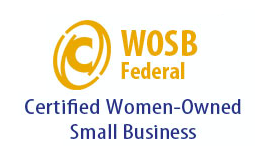Last week, I discovered that the arthritic hip that I had been protecting from too much exercise over the past 12 years was, in fact, not arthritis at all. It turns out that it is an inflexibility in my lower back that would have benefitted greatly from a decade or so of much more exercise than I was doing. The discomfort in my hip, knee and ankle was a compensation for the inflexibility in my back… An inflexibility that I should have been actively managing for quite a while now.
My diagnosis for arthritis came as a result of a very superficial examination by my local doctor back in 2009. A five minute, mostly visual, assessment and a cursory diagnosis. ‘Well, it’s obvious what’s wrong with you…If it gets too uncomfortable, there are some good painkillers available.”
I fear that we often approach organisational ailments in the same way. A little anecdotal evidence and then a cursory diagnosis. High staff turnover? Then we need to install a ping-pong table. Gender pay gap? Then we need unconscious bias training.
Now there is nothing especially wrong with either unconscious bias training or ping pong, but we really have to be smarter about how we diagnose the critical challenges we face. Especially challenges that confront the way we recognise talent and value difference. People will get seriously disenchanted with knee-jerk prescriptions, particularly if they continue to fail to deliver meaningful change. And by meaningful change, I mean outcomes that can be measured in the way real resources, services and benefits are allocated. I understand that hot stone massage and turmeric latte might reduce my symptoms, but what I actually want is to be able to walk in the Pyrenees.
If we are to have any chance of making a serious difference, especially when it comes to Equity, we need to be much clearer about what we are up against.
Leading NOW has developed an Inclusive Culture Assessment (ICA) that seeks to do just this. Rather than a knee-jerk prescription, the assessment seeks to identify the specific Leadership, Cultural, and Equity-frustrating behaviours that underpin the kind of organisational barriers and attitudes that we routinely encounter on the road to a more inclusive workplace.
The Inclusive Culture Assessment is a focused, 45 question survey that pinpoints some of mindsets that frustrate employees with a different perspective, and will undermine genuine attempts at achieving greater equity that the organisation is intending to make. The ICA should, in other words, offer a clearer insight into the actual challenge(s) that your organisation needs to address. There is, after all, no point in sending everyone on awareness training if the critical issue concerns the commitment of senior leaders. Equally there is little merit in continuing to focus on culture, if the data tells us that real Equity has not been achieved.
The resolution of inequity means going beyond simply (re)classifying the particular stereotypes or biases that exist within the organisation. The aim of the ICA (and the follow-up interventions by Leading NOW) is to accelerate (the) conversation and provoke the action needed to achieve greater Equity, by focussing on the role that both leadership and culture play in erecting and maintaining barriers.
If you are interested in learning more about our Inclusive Culture Assessment or want to chat about how Leading NOW can partner with your organization to take a deeper look into its DE&I needs, contact us.









